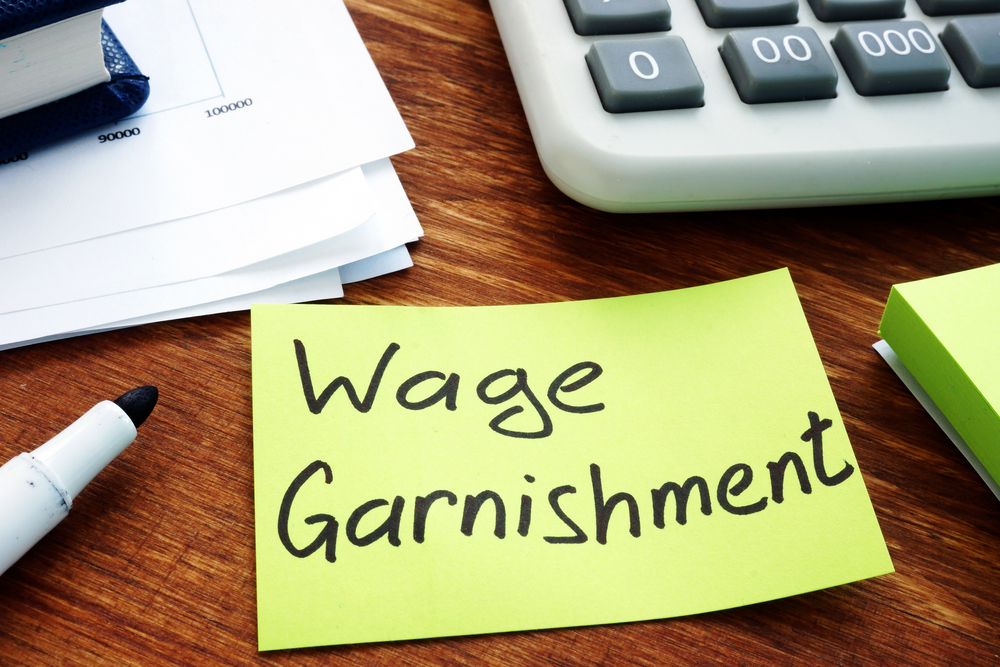Understanding Wage Garnishment for Tax Debt: Why It Starts, How to Stop It, and What Your Rights Are
- Jul 01, 2024
 Wage garnishment is a severe consequence of unpaid tax debt, where a portion of your salary is withheld by your employer and sent directly to the IRS. Understanding why wage garnishment starts, how to stop it, and what your rights are can help you navigate this challenging situation. Here’s what you need to know.
Wage garnishment is a severe consequence of unpaid tax debt, where a portion of your salary is withheld by your employer and sent directly to the IRS. Understanding why wage garnishment starts, how to stop it, and what your rights are can help you navigate this challenging situation. Here’s what you need to know.
Why Wage Garnishment Starts
Wage garnishment for tax debt begins when the IRS takes action to collect unpaid taxes. Here are the primary reasons why this might happen:
- Unpaid Tax Debt: The most common reason for wage garnishment is having outstanding tax debt. If you owe taxes and have not made arrangements to pay, the IRS will eventually take steps to collect the amount due.
- Ignored IRS Notices: Before garnishing wages, the IRS will send a series of notices, including a final notice of intent to levy and your right to a hearing. Ignoring these notices can lead to wage garnishment. It is crucial to respond promptly to any communication from the IRS to avoid severe consequences.
- Failure to Settle or Negotiate: If you have not taken steps to settle your tax debt, such as setting up a payment plan or negotiating an offer in compromise, the IRS may proceed with wage garnishment. Taking proactive measures can prevent this from happening.
How to Stop Wage Garnishment
Stopping wage garnishment requires immediate action and often the assistance of a tax professional. Here are the steps you can take:
- Pay the Debt in Full: The most straightforward way to stop wage garnishment is to pay your tax debt in full. While this may not be feasible for everyone, it is the quickest solution.
- Set Up a Payment Plan: Contact the IRS to establish an installment agreement. This allows you to pay your debt over time in manageable installments. Once an agreement is in place, the IRS will typically stop wage garnishment.
- Negotiate an Offer in Compromise: An offer in compromise allows you to settle your tax debt for less than the full amount owed. This option is available if you can demonstrate that paying the full amount would cause financial hardship. Successfully negotiating an offer in compromise can halt wage garnishment.
- Request a Collection Due Process Hearing: If you receive a final notice of intent to levy, you have the right to request a collection due process hearing within 30 days. This hearing provides an opportunity to dispute the garnishment and explore alternative payment arrangements.
- Prove Financial Hardship: If wage garnishment creates a significant financial hardship, you can request that the IRS release the levy. This requires providing detailed financial information to demonstrate the impact on your ability to meet basic living expenses.
What Your Rights Are
Understanding your rights when facing wage garnishment for tax debt is essential. Here are key rights you should be aware of:
- Right to Notice: The IRS must send you a series of notices before garnishing your wages, including a final notice of intent to levy and your right to a hearing. These notices provide an opportunity to address the debt before garnishment begins.
- Right to a Hearing: You have the right to request a collection due process hearing if you receive a final notice of intent to levy. This hearing allows you to dispute the garnishment and propose alternative solutions.
- Right to Appeal: If you disagree with the outcome of your collection due process hearing, you have the right to appeal the decision. This involves submitting a formal appeal to the IRS Office of Appeals.
- Right to Legal Representation: You have the right to be represented by a tax professional or attorney in all dealings with the IRS. Professional representation can help you navigate the complexities of tax law and improve your chances of a favorable outcome.
- Limits on Garnishment Amounts: The IRS cannot garnish all of your wages. There are limits on the amount that can be withheld, ensuring that you still have enough income to cover basic living expenses. The amount exempt from garnishment is based on your filing status and the number of dependents you claim.
Wage garnishment for tax debt is a serious issue that can have significant financial consequences. Understanding why it starts, how to stop it, and what your rights are can help you take control of the situation. Taking prompt action can prevent or stop wage garnishment. Additionally, knowing your rights ensures that you are treated fairly throughout the process.
For personalized assistance and expert guidance, contact the IRS Advocates today. We can help you explore your options and develop a plan to resolve your tax debt effectively.
STOP THE IRS!
Settle for less & Protect your assets
Never Call the IRS without Speaking with our Pros First!